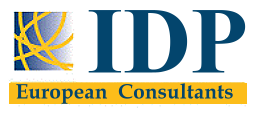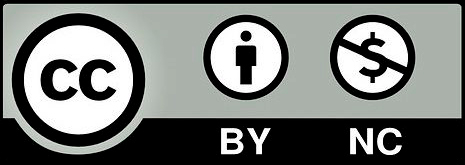Training
It consists in the Contents creation through a set of web courses specifically designed for Seniors to promote their financial security.
This innovative e-learning course on financial education is designed to provide learners with the essential knowledge, skills and competencies to better manage their personal finance.
During project development discussions, partners already identified 3 macro-AREA directly linked to the scope of the project:
FIRST AREA
Financial Literacy Alphabet
The first area of the FLY e-learning course provides relevant information on the ABC of Financial knowledge. It includes videos, check lists, infographics and various materials for further studying. Participants' learning progress is evaluated via exercises and assignments: they will obtain a personalised certificate of attendance upon successful completion of the module's test.
This content area includes:
- The knowledge and ability to monitor and control income and expenses: Identifying various types of income (e.g. allowances, salary, commission, benefits) and ways of discussing income (such as hourly wage and gross or net annual income)
- Drawing up a budget to plan regular spending and saving and staying within it.
- Finance aspects: for example Bank role, How choose a bank account, stock, rating, loans, public finance (Government taxes) , spread, kind of investment etc
- Digital Finance
 Module. Fundamentals of finances
Module. Fundamentals of finances
Recognise the basic financial operations. Identify the key elements of financial operations: initial capital, final capital, interest and interest rate. Know how to interpret the meaning of the different ways of expressing the interest rate of an operation: nominal rate, effective rate and APR. Making it easier to track personal finances.
 Module. Money and Means of Payment
Module. Money and Means of Payment
Understanding the importance of electronic banking. Identify the different types of bank cards that exist and how they work. Knowing how to pay with your mobile phone. Distinguishing between a bank transfer and direct debit.
 Module. Economic Indicators
Module. Economic Indicators
Knowing the concept of Gross Domestic Product. Understanding inflation and deflation. Understanding the concept of exchange rates and their usefulness. Knowing how to analyse the labour market.
SECOND AREA
Financial Decision-Making and Management
This content area includes:
- Understanding how to manipulate various elements of a budget, such as identifying priorities if income does not meet planned expenses, or finding ways to increase savings, such as reducing expenses or increasing income
- Understanding the purposes of accessing credit and the ways in which expenditure can be smoothed over time through borrowing or saving
- Understanding the idea of building wealth, the impact of compound interest on savings, and the advantages and disadvantages of investment products
- Risk and Danger of Finance
- Examples of Bad practices of Banks and frauds
 Module. Savings products: deposits
Module. Savings products: deposits
Know the basic operation of a bank deposit and an account. Know how to differentiate which type of deposit or account is best suited to each person's financial and personal situation. Be able to interpret and compare different deposit or account offers in terms of yield, liquidity and term.
 Module. Financing options, credits and loans
Module. Financing options, credits and loans
To identify the different types of loans. To recognise the elements involved in a loan operation. Knowing the difference between a loan and a credit.
 Module. Family / personal budget management
Module. Family / personal budget management
Identifying and differentiating between expenditures and payments. Identifying and differentiating between collections and incomes. Managing our money in the best possible way.
 Module. Special products (i.e.: reverse mortgage)
Module. Special products (i.e.: reverse mortgage)
Understanding how reverse mortgages work. Understanding how structured deposits work.
THIRD AREA
Finances for Good
This content area includes:
- Social Finance
- Etic Finance
- How finance can helps the planet (Green investment)
- How finance can help social projects
- Sustainable finance
 Module. Financial advisory
Module. Financial advisory
Define the concept of financial advisory and the role of financial advisor. Choose the financial advisor who best suits your interests and personal situation. Prepare a meeting with a financial advisor by keeping into account your own needs, financial objectives and possibilities. Define the concepts of licence, financial risk and investment.
 Module. Risks and Dangers of Finance
Module. Risks and Dangers of Finance
Definition and basic taxonomy of financial dictionary Make better informed financial decisions Strategizing plan Bs and safety nets
 Module. Ethical finance for a just society
Module. Ethical finance for a just society
Be more aware of the impact on society and the environment of our savings and of how we use them Be stimulated to direct our savings towards responsible and sustainable banks and investment products Know which parameters and documents to look for to verify the sustainability of banks and financial products Being able to recognize practices of greenwashing Acquire knowledge of sustainable and responsible investment funds and other "social" tools of investment












